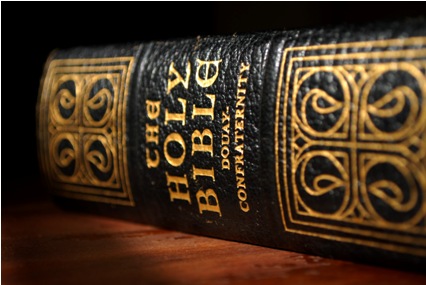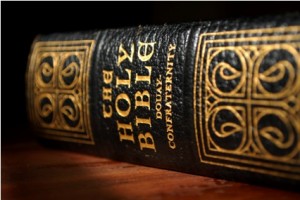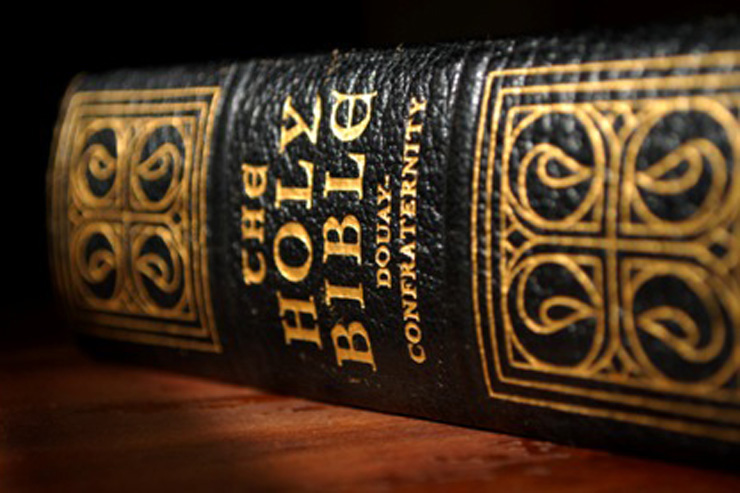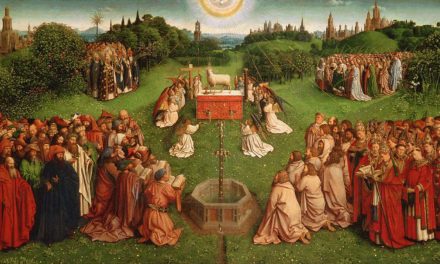Editor’s Note: Reflection on the Mass readings for the 1st Sunday of Advent (Year B) – Genesis 9:8-15; Psalms 25:4-5, 6-7, 8-9; First Peter 3:18-22; Mark 1:12-15. This series appears each Wednesday.
In today’s fuzzy moral landscape, it is quite unpopular to even speak of sin, never mind condemn it. It’s even more politically incorrect to talk about God taking stern action against sin and those who promote it.
But that is exactly what the story of Noah and the flood is all about, as we are reminded by the scripture readings for the first Sunday in Lent. The great flood is a testament to God’s hatred of sin and determination to wipe it from the face of the earth. He of course offers a way to escape the waters of destruction. He instructs Noah to build an ark which carries to safety eight people and a pair of every animal. With these, he provides the earth and the human race with a new beginning. As a sign of God’s covenant of friendship with the newly recreated world, he places a rainbow in the sky.
From the beginning, Christians have seen in this story a hint of a greater work of God that would come later. The first flood swept away the evil from the surface of the earth, but not from the hearts of the ark’s passengers. The Red Sea closing in upon Pharaoh and his armies had much the same limitation – it did not cleanse the soul of Israel.
So an even greater act of salvation was needed, one that was more radical, that penetrated to the very “root” of evil. God himself enters into our world in the form of a man, and engages in hand to hand combat with the father of lies. First Jesus himself is immersed in the waters, a sign of the destruction of sin, though he himself has no sin. Next he goes into the wilderness to strike at sin’s agent.
The wrestling match is won by the Son. This, however, is not the decisive battle. Mark is a gospel of few words and does not relate what Luke (4;13) tells us: Satan left Jesus to await another opportunity. That opportunity came later, brokered by Judas, Caiphas, and Pilate. By means of the cross, the sign of this New Covenant, Jesus decisively vanquished sin and its patron, letting loose from his pierced side a stream that was more powerful than the ancient waters traversed by Noah and Moses. Through faith and immersion in these mighty waters of baptism, sin can finally be scoured not just from the skin but from the heart, putting to death not men, but the old humanity, separated from God and infected with the disease of disobedience. The first Letter of Peter (3:20) points out something that we can easily miss – there happened to be 8 persons in the ark. Jesus rose from the day after the Sabbath, the “Eighth Day.” God created the old world in six days, rested on the seventh, and performed the new creation on the eighth. For this reason, in the early Church, baptisms did not usually take place inside the main church sanctuary. Rather, smaller buildings called baptistries were erected next door to the church. It is notably that they were generally octagonal (eight-sided). Why? Because baptism means burying the old man with Christ and emerging from the womb of the Church as a new creation, sharing in Christ’s resurrection.
Lent is a time intimately linked with baptism. In the early Church, it was the season that catechumens prepared themselves through prayer and fasting for their paschal journey to the baptistry. The faithful prayed and fasted with them. It was also the time that those who had soiled the white garments of their baptism through sin prepared for reconciliation during the sacred Triduum.
If we’re honest, all of us fall to some degree into that second category. So let us determine – through prayer, fasting, and giving – to intercede for the catechumens and candidates, and at the same time to scour lukewarmness and compromise from our own hearts. Procrastination and excuses must be put to death. Now is the acceptable time, now the day of salvation!
Dr. Marcellino D’Ambrosio writes from Texas. For his resources on parenting and family life or information on his pilgrimages to Rome and the Holy Land, visit www.crossroadsinitiative.com or call 1.800.803.0118. This article originally appeared in Our Sunday Visitor and is reproduced here by permission of the author.
Please help us in our mission to assist readers to integrate their Catholic faith, family and work. Tell your family and friends about this article using both the Share and the Recommend buttons below and via email. We value your comments and encourage you to leave your thoughts below. Thank you! – The Editors













